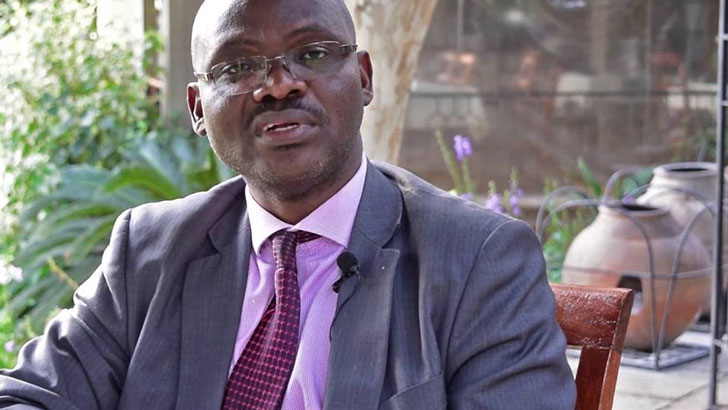President Lazarus Chakwera in March this year approved a new gratuity formula for Cabinet ministers and deputy ministers, which will see 20 Cabinet ministers and five deputies sharing K1 billion instead of K351 million, we have established.
The new formula, which is yet to be effected, poses a challenge to austerity measures Chakwera unveiled in May aimed at stabilising the bleeding economy that forced government to devalue the kwacha by 25 percent in the same month.
A confidential memorandum from former Secretary to the President and Cabinet (SPC) Zanga-Zanga Chikhosi, File Ref: SPC/S/002 dated March 10 2022 titled ‘Gratuity for Former Ministers and Deputy Ministers’ to Chakwera’, which we have seen, proposed to the President to approve the new formula, arguing that basing calculation on basic pay, instead of gross salary, was proving to be problematic.
In the memo, Chikhosi stated that the old approach is “unnecessarily” disadvantaging the ministers and deputy ministers who double as members of Parliament (MPs).
Reads the memo signed by Chikhosi: “This is the case because Parliament calculates its gratuity based on the basic salary plus the amount of all fringe benefits that are paid or received.
“I, therefore, have the honour to propose, for your Excellency’s consideration and approval, that with immediate effect, the gratuity formula for ministers and deputy ministers should be fully aligned with Parliament in order to address the discrepancies that arise whenever gratuity is due.”
According to the letter, the former SPC also consulted Minister of Finance and Economic Affairs Sosten Gwengwe, who is said to have been “comfortable with this proposal”.
Chakwera, according to the memo, approved the arrangement on March 13 2022.
Gwengwe could neither confirm nor deny that he was consulted, but stressed that consulting Treasury on a matter such as this one does not change anything as it is OPC that has powers to approve.
OPC deputy director (Administration/Information officer) Lyson Kandu confirmed the new arrangement of paying 40 percent gratuity on all fringe benefits.
“This is intended to harmonise with Parliament, so that Cabinet ministers who double as members of Parliament are not disadvantaged when receiving their gratuity,” he said.
Spokesperson for Parliament Ian Mwenye confirmed that the gratuity formula for lawmakers is calculated as basic salary plus monthly allowances.
Chakwera dissolved Cabinet on January 24 2022 and all former ministers and deputies who may have continuously served for a period of not less than six months since June 2020 are entitled to a gratuity, which according to Cabinet ministers’ Terms and Conditions of Service is calculated at 40 percent of basic salary earned.
But instead of paying the ministers gratuity based on total basic pay earned over the period served, Chakwera approved the new calculation of gratuity based on gross salary (including fringe benefits received or paid), which will cost the tax-payer over K600 million more.
A computed schedule of ministers and deputies’ gratuity payments which we have also seen shows that basing calculation on basic pay, a full minister’s salary of K1.8 million since June 2020 translates to a total basic salary of K37.1million and a gratuity of K14.8 million while a deputy’s salary of K1.5 million and a total basic salary of K30.8 million give a gratuity of K12.3 million.
This means government ought to have paid gratuity of K351 million for the 20 ministers and five deputies if calculated at 40 percent of basic salary.
However, the new formula based on monthly gross salary of between K5.5 million and K4.2 million for Cabinet ministers and deputies, respectively, and depending on the period served, shoots the gratuity bill to over K986 million for the 25 ministers and deputies.
According to the computed schedule for the 18 months served from July 2020, the new formula will see ministers earning between K34 million to K40 million instead of K15 million while deputy ministers will receive K30 million instead of K12 million.
As part of austerity measures, Chakwera has cut by 20 percent fuel allowances for his Cabinet, foreign travel, restrictions on foreign travel and banned use of government vehicles after 6pm.
The Reserve Bank of Malawi on May 26 2022 devalued the kwacha by 25 percent in a desperate move to stimulate the economy and woo back foreign donors, waiting for an International Monetary Fund cue. The adjustment, while a necessary evil to boost exports and trigger balance of payment inflows that bring foreign currency, were expected to further raise prices of basic items and fuel.
Commenting on the issue, economist Milward Tobias described the decision on change of gratuity payment as strange, saying it was not servant leadership as advocated by the Tonse Alliance leaders during the campaign period.
Tobias, who is also executive director of Centre for Research and Advocacy, in an interview, said Cabinet ministers already have obscene entitlements worth millions in form of fuel, motor vehicle loans and security, saying rewarding them with extra millions in gratuity while the poor people continue to suffer is evil.
“Ordinarily, allowances are not taxed and how can you calculate gratuity based on the same?” he asked.
Governance expert Clemence Alfazema said the normal gratuity is based on basic salary.
Agreeing with Tobias, Alfazema said ministers are benefiting from untaxed income because normally fringe benefits are paid separately from salary.
“This diversion from the norm means that ministers are more important than other citizens or puts them above the law on taxation. This is abuse of public resources.
“In a country where resources are scarce, such policies offer no hope for the welfare of the general public. All pronouncements on austerity will be viewed as deception. It dwindles the national morale for hard work and does not encourage efforts in the fight against corruption.”
A source who asked for anonymity said OPC is in the process of paying out the gratuities. But he said, according to laws governing employment (Employment Act, Pensions Act,) under which ministers’ and deputy ministers’ contracts fall, gratuity is supposed to be based on their basic pay and not fringe benefits or duty facilitation allowances.
He also decried the arrangement, which he said is also happening at Parliament where gratuity for members of Parliament is also calculated based on gross emoluments, including all the benefits received ”without regard to the fact that these are duty facilitation payments”.
Other benefits ministers and deputy ministers who are also members of Parliament receive, some as duty facilitation payments, are hospitality, telephone, medical insurance, constituency, water, electricity, house worker, relocation and settlement and house allowance. n
The post K1BN splurge on ministers appeared first on The Nation Online.
 Moni Malawi
Moni Malawi 

